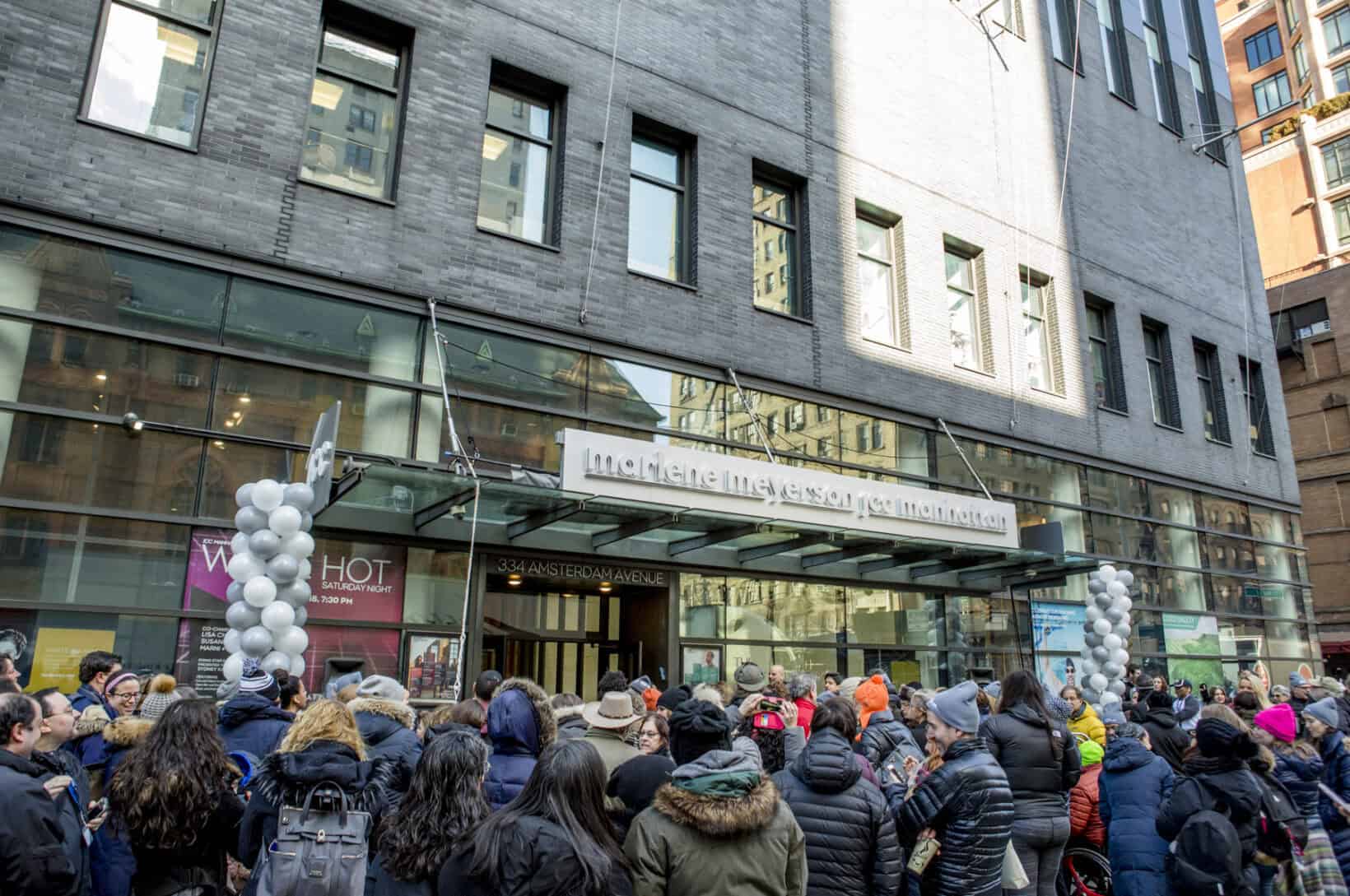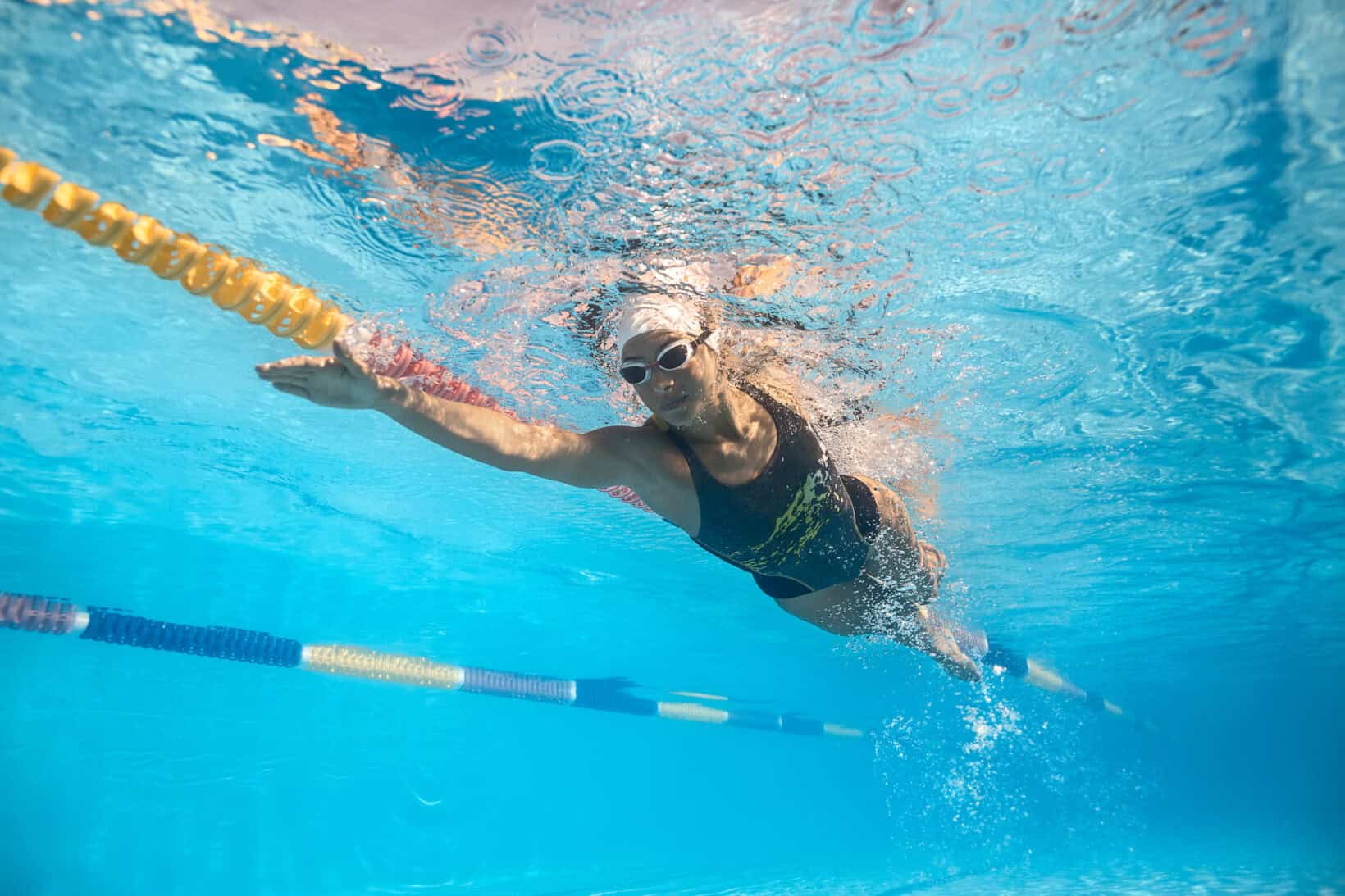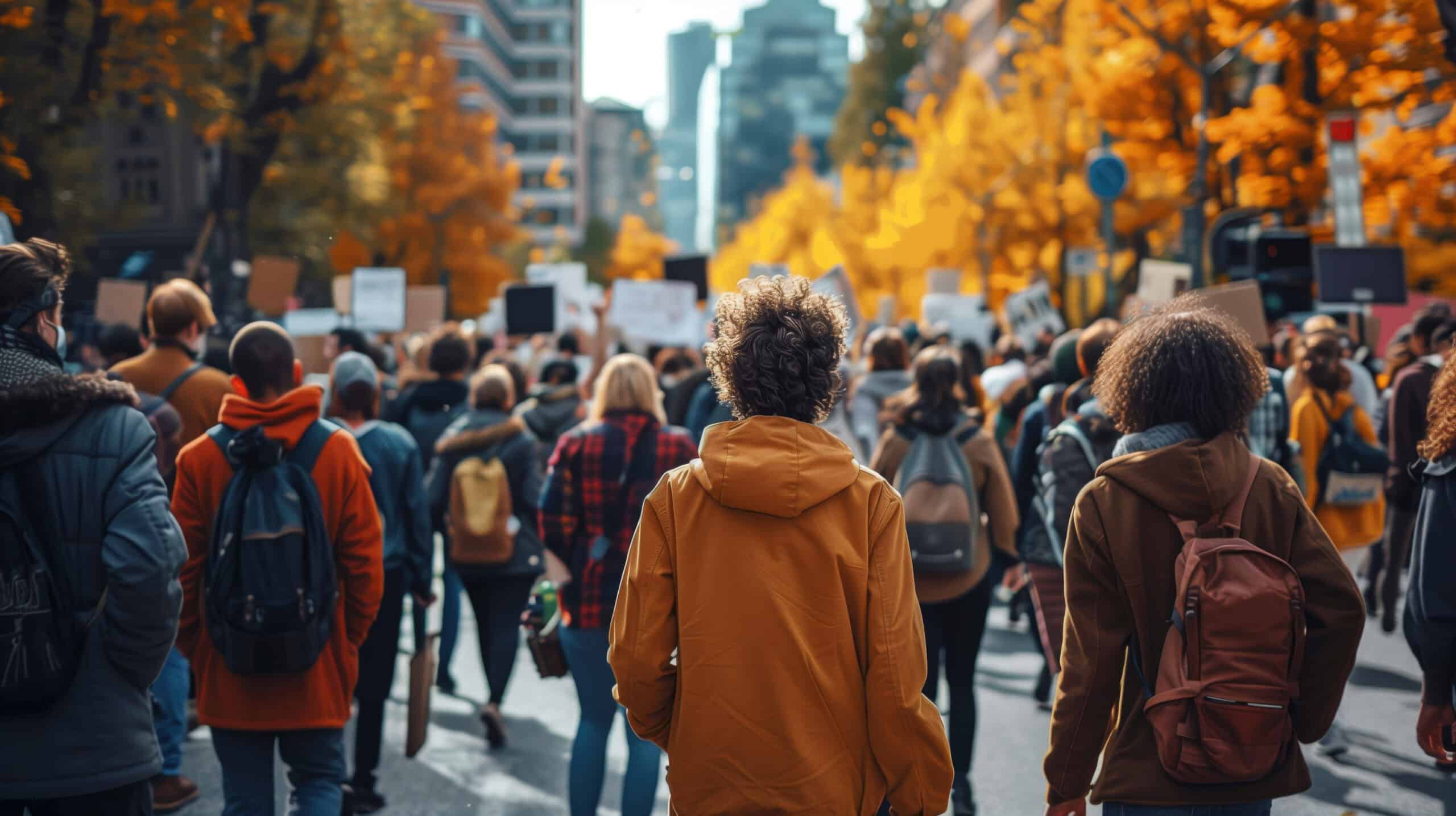
Content Archives

Welcome to the Marlene Meyerson JCC Manhattan Archives
Explore a curated collection of podcasts, videos, and past events that highlight the rich history, engaging discussions, and vibrant community of Marlene Meyerson JCC Manhattan.
Whether you’re looking to revisit meaningful conversations, catch up on inspiring programs, or explore past events, our archives provide a gateway to the moments that have shaped our community. Dive in and discover the stories that continue to inform, entertain, and connect us.
Press Center
Jewish Telegraphic Agency : Israeli-style Michaeli Bakery opens a new outpost inside the JCC on the Upper West Side
I Love The Upper Westside : Popular Israeli Bakery Opening at the JCC
Jewish Telegraphic Agency : At a ‘Havdalah for the Hostages,’ New Yorkers feel cautious optimism about ceasefire deal
PIX11 : Hanukkah set to begin
Authority Magazine: Social Impact Heroes: Why & How Rabbi Joanna Samuels of Marlene Meyerson JCC Manhattan Is Helping To Change Our World
CEO, Rabbi Joanna Samuels’ Passover feature on GoldaGuide.com / A Rabbi Answers All of Your Seder Questions
MMJCCM Receives Covenant Grant: Funding to launch Zimriyah: Jewish Belonging Through Song!
CEO, Rabbi Joanna Samuels’ eJewish Philanthropy Op-Ed / Jewish women, the vibe shift and how we step back into building a just world
JDAIM (Jewish Disability, Accessibility, and Inclusion Month): / Jewish Hungary for All Abilities: Experiencing a More Inclusive Jewish World with JDC Entwine / Teen-Led Initiative Happy Hoops Launches, Uniting a Community Through Inclusive Basketball
Books That Changed My Life Festival / The JCC’s Books That Changed My Life Festival Returns for the 3rd Year! / Books That Changed My Life Festival Featuring Panel on Monsters in Literature
Michaeli Bakery Opens at the JCC / Israeli-style Michaeli Bakery opens a new outpost inside the JCC on the Upper West Side / Popular Israeli Bakery Opening at the JCC
Havdalah for the Hostages: / At a ‘Havdalah for the Hostages,’ New Yorkers feel cautious optimism about ceasefire deal
CEO, Rabbi Joanna Samuels on WPIX11 / Hanukkah set to begin
Forward / August 16, 2023 / Ecstatic, spiritual, Jewish music — only this time with a more diverse audience and a lot more bass
West Side Rag / May 26, 2023 / JCC Coalition Helps in Community-Wide Effort to Support Migrant Children
Jewish Week / May 23, 2023 / How New York is celebrating Shavuot 2023
Jewish Week / May 17, 2023 / Sophie is 85 and survived the Holocaust. Caroline is 29 and new to NYC. Here’s how they became fast friends.
Forbes / May 16, 2023 / ReelAbilities Set to Launch Streaming Service Dedicated to Disability-Related Films
ABC7 / May 5, 2023 / Film festival explores stories of people with disabilities
Broadway World / May 3, 2023 / Line Up Announced for Free All Night Tikkun Leil Shavuot
NY1 / May 2, 2023 / Film festival showcases works on people with disabilities
The Hollywood Reporter / April 27, 2023 / ReelAbilities New York Director on the State of Disability Inclusion and Changes Over the Fest’s 15 Years
CBS New York / April 27, 2023 / Reelabilities Film Festival returns, celebrating stories of people with disabilities
JTA / April 24, 2023 / Here’s how New York City is celebrating Yom Haatzmaut, Israel’s Independence Day
Forbes / April 23, 2023 / 3 Disability Features Not To Miss At The 2023 ReelAbilities Film Festival
Scary Symptoms / April 23, 2023 / Autistic Music Band to Be Featured in New York Film Festival
Jewish Week / April 14, 2023 / How Yom Hashoah is being marked in New York City
Jerusalem Post / April 13, 2023 / Who are we? 120 years of art in Israel
Gothamist / April 6, 2023 / Chag Pesach Sameach! What to do for Passover in and around NYC
City Life Org / April 6, 2023 / Announcing Boosting Brain Health With Food + Broadway’s Best for Parkinson’s on April 17
Jewish Week / March 31, 2023 / Where to celebrate Passover in NYC: seders, art and matzah pizza
New York Family / March 24, 2023 / Camp Touring: What You Need to Know
City Life Org / March 22, 2023 / MMJCCM Announced Israel @ 75, A Celebration of Israel’s 75th Anniversary with Star-Studded Artists, Politicians, and Cultural Guests
Made Visible Podcast / March 21, 2023 / Isaac Zablocki, Coping with Dysgraphia and Advocating for Change Through Film
Variety / March 15, 2023 / Troy Kotsur to Receive Spotlight Award at ReelAbilities Film Festival
Disability Matters Podcast / March 14, 2023 / Isaac Zablocki: Making Films/Productions More Accessible
I Love NY / March 13, 2023 / 16 Things to Do this April in New York State
NY1 / March 7, 2023 / Purim celebrations through the eyes of a rabbi of color
New York Family / February 28, 2023 / Purim Events for Families 2023
Broadway World / February 28, 2023 /Marlene Meyerson JCC Manhattan Announces Broadway’s Best for Parkinson’s
City Life Org / February 21, 2023 / All-female video art exhibit Veni, Vidi, Video Announced at JCC Manhattan
JTA / February 13, 2023 / An ahead-of-its-time klezmer album will be performed live for the first time (featured item in daily newsletter)
Moms & Tots Magazine / February 5, 2023 / Voice lessons for kids in NYC
Time Out / February 1, 2023 / Author Emma Straub on her favorite books about New York City
Daily News / January 24, 2023 / NYC will host 1,000 free dinners aimed at ‘building bonds,’ fighting hate: Mayor Adams
New York Family / January 24, 2023 / 9 Best Indoor Play Spaces for Kids in New York City
Time Out / January 10, 2023 / The best Martin Luther King Day events in NYC
Patch / January 6, 2023 / UWS Massive Book Festival Kicks Off With Star-Studded List of Authors
Time Out / January 3, 2023 / Books That Changed My Life Festival





